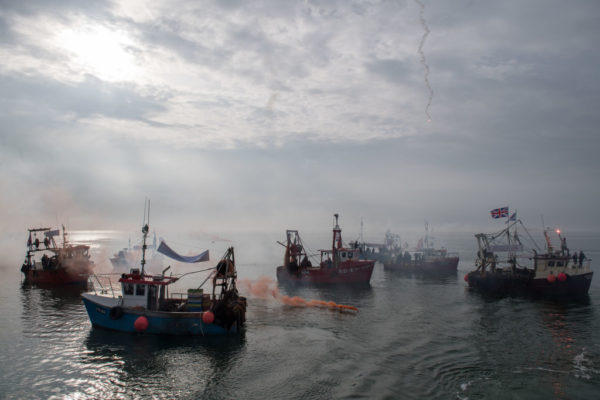Michael Gove criticised over ‘gross inequality’ of fishing quota system
Labour calls for an end to 'deeply unjust monopolies' in response to Unearthed investigation

Opposition parties have called for the government to take “urgent action” to redistribute UK fishing rights and end “deeply unjust monopolies” of fishing quota by a wealthy elite.
The calls came after an Unearthed investigation revealed this morning that five of the UK’s wealthiest families control more than a quarter of the country’s fishing quota.
Responding to the investigation, shadow environment secretary Sue Hayman told Unearthed: “The findings of this investigation highlight the hypocrisy and betrayal that this government continues to inflict upon British fishers in coastal communities right across the UK.
“We have known for years that ministers need to take urgent action to use the powers that they have domestically to redistribute fishing quota to deliver a fairer deal for smaller boats.
“But instead this government prefers to blame others and turn the other way as access to quota continues to be restricted for small boats and controlled by huge commercial boats and some of the wealthiest families in the UK.”
The government is poised to publish a new fisheries bill, which will set the legal framework for the UK fishing industry after Brexit. The government hopes to secure a greater share of the catch from British waters in the Brexit negotiations – but it has said it does not plan any changes to the way existing UK quotas are distributed.
As Unearthed’s investigation revealed today, that would leave 29% of the UK’s fishing quota in the hands of just five families on the Sunday Times Rich List – and around half of England’s quota in the hands of overseas interests.

Ms Hayman continued: “Labour is not surprised by this report that highlights the gross inequality of the fishing sector. We already know despite making up the majority of the British fishing fleet, smaller boats have just four per cent of the total quota.
“We know the Dutch-owned trawler, the Cornelis Vrolijk, controls more than a fifth of England’s entire quota allocation, and about two-thirds of England’s quota is awarded to three multi-national companies.
“But we are outraged at the lack of action from government to fix this. Fishing was the poster child of the Leave campaign and Gove has already broken promises he made to the industry to secure full control of our waters during the transition. With all the talk of ‘take back control’, Ministers have the power to distribute UK quota now and put the smaller-scale fleet first. So why wasn’t it mentioned in their white paper?
“This report shows while it points the fingers at others, this government is to blame for a sector rigged in the interests of the super-rich. Any future fishing policy must consider how new and existing quota can be more fairly distributed and we will treat this as a priority in the upcoming fisheries bill.”
Green Party MP Caroline Lucas told Unearthed: “This is a timely reminder that the health of our seas and oceans is being decimated to make profits for an already ultra-rich elite. If this government was serious about giving power back to local communities, they would act to end these deeply unjust monopolies right away.
“At the heart of our future fisheries policy needs to be a legally binding commitment to restoring our depleted seas, while at the same time providing secure jobs in sustainable fishing for coastal communities around the UK.”
A spokeswoman for the Department for Environment, Food and Rural Affairs told Unearthed the department was reviewing rules around the “economic link” that foreign-owned flagships must have with the UK in order to hold UK quota.
She said: “We are clear fishing communities and our wider economy should benefit as much as possible from those fishing the UK’s quota, and we are working closely with fishermen to review and reform the rules around the economic link condition.”

